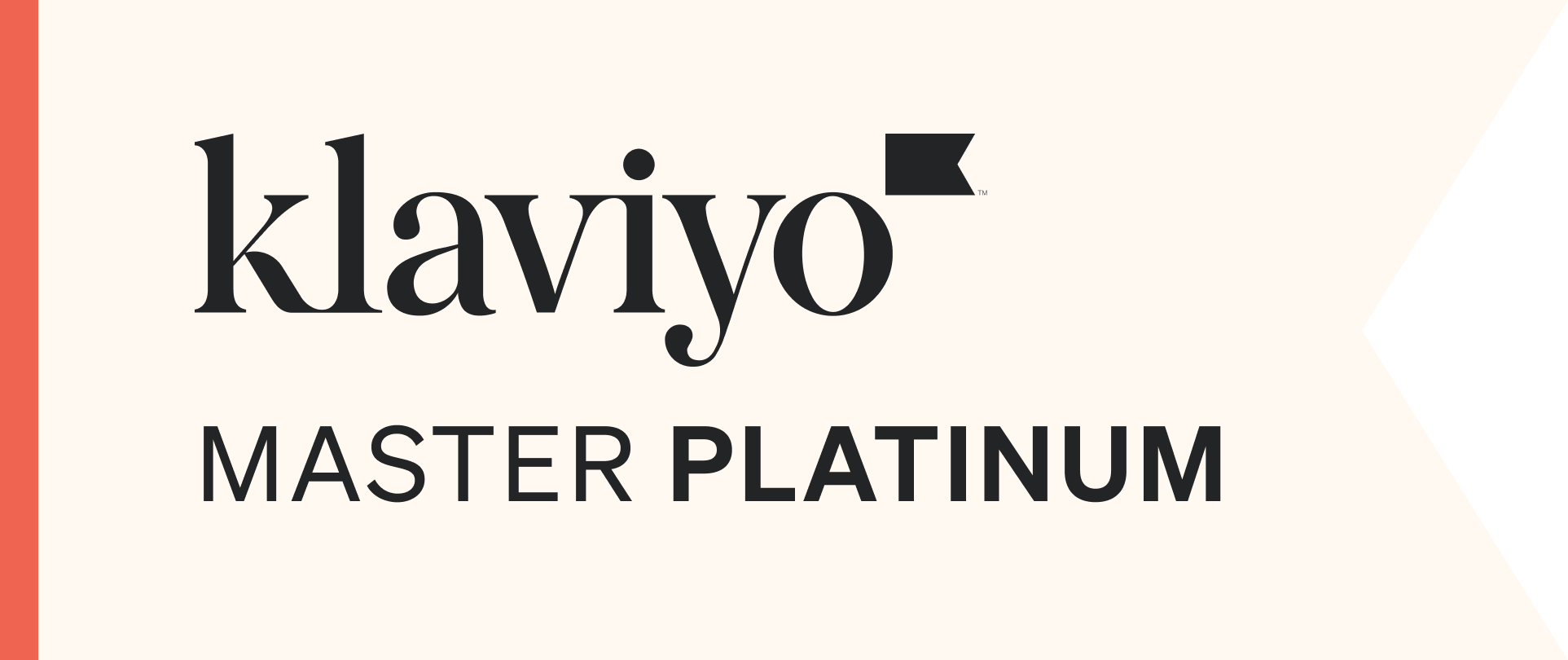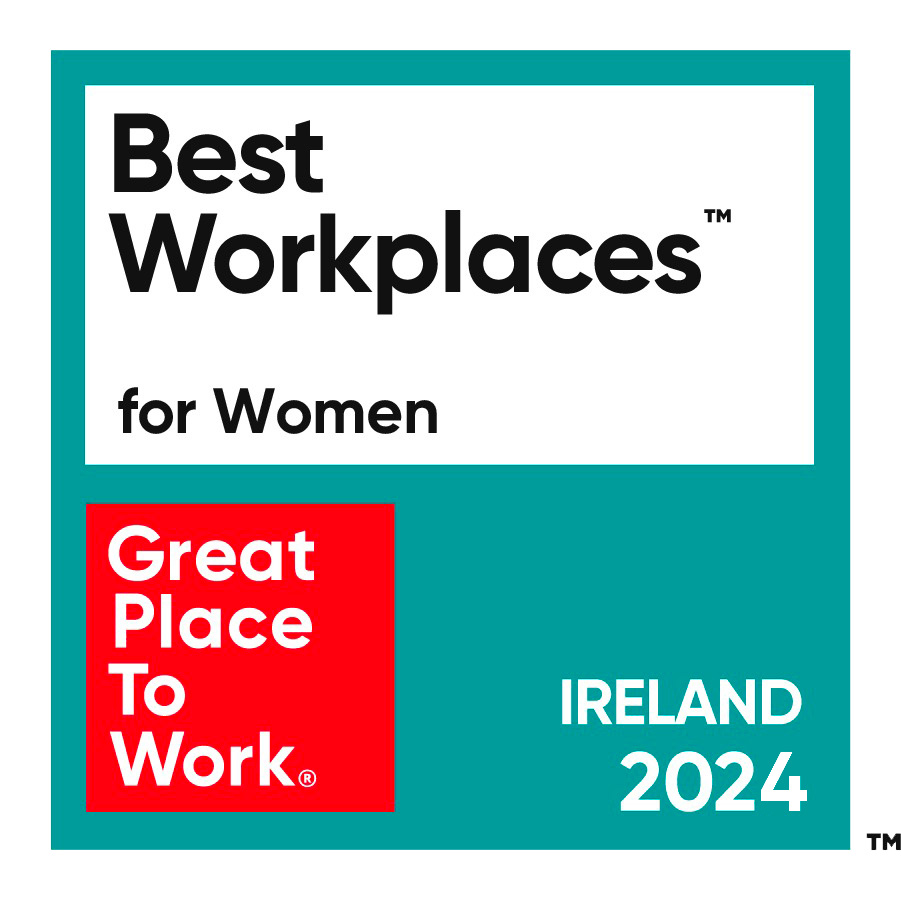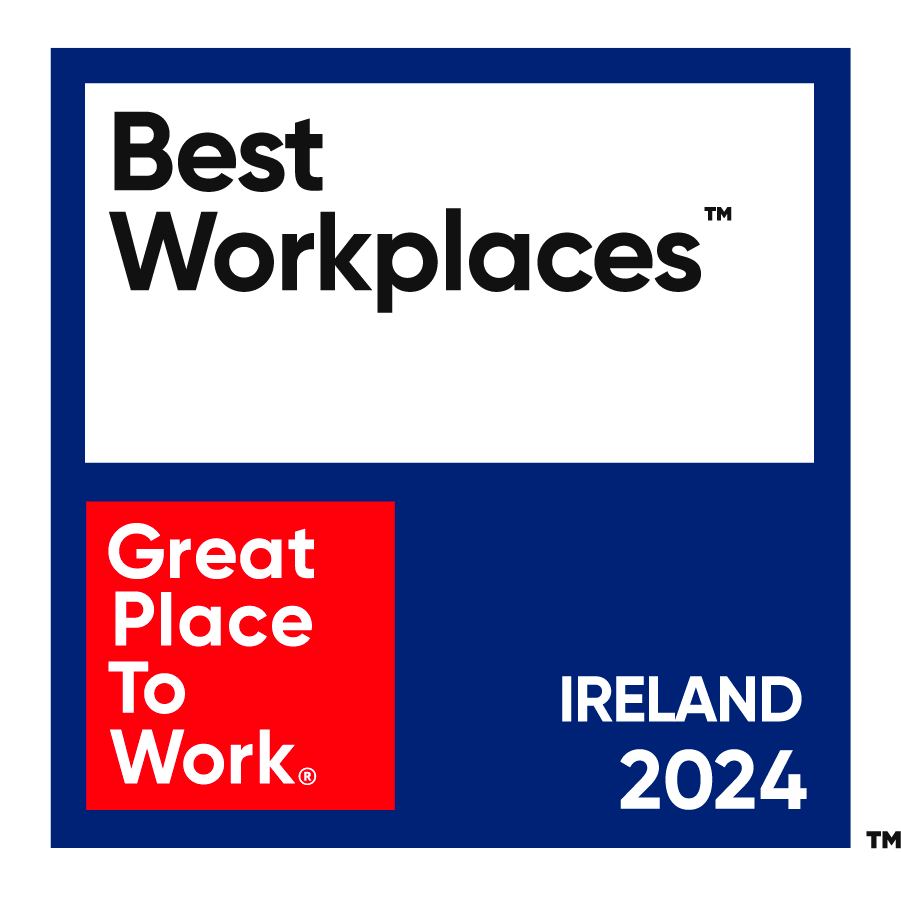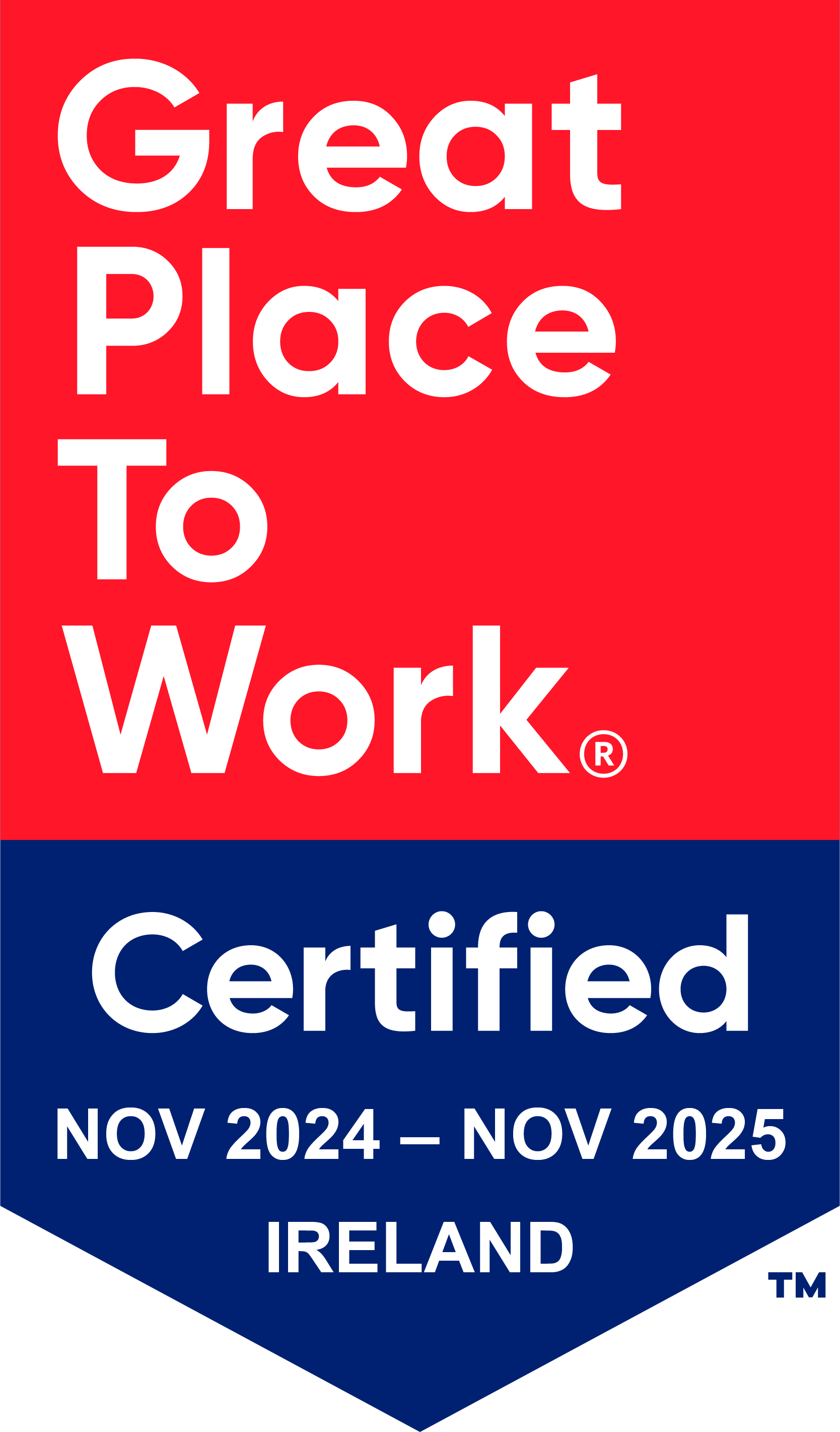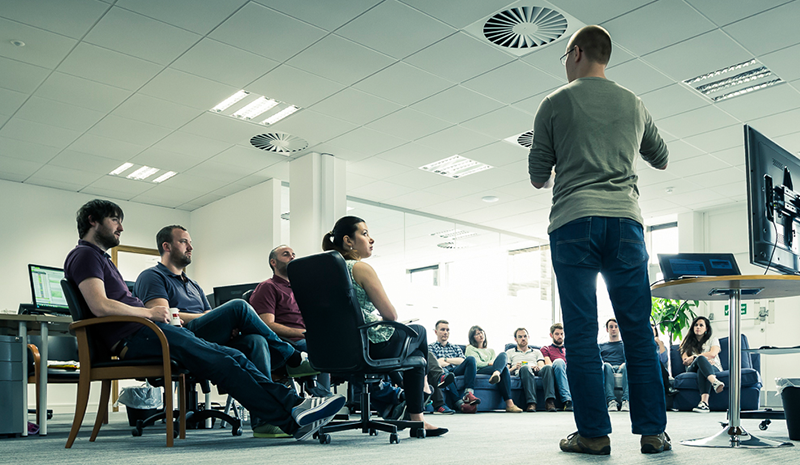By Laura Guiot on 12 Sep 2024
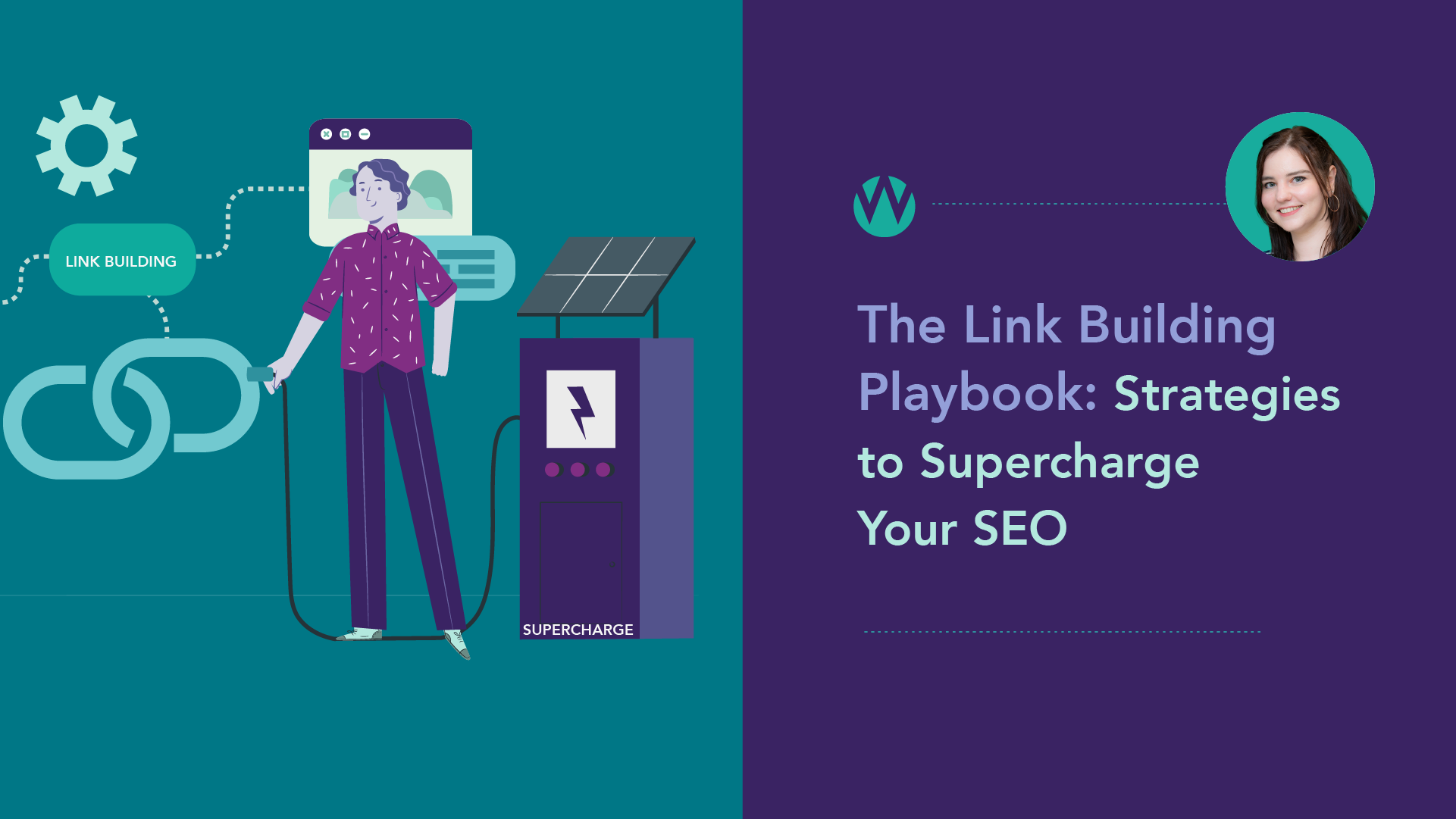
In the ever-evolving world of SEO, link building remains one of those golden opportunities that can significantly boost your website’s organic performance - if it's done right!
But let’s face it, link building can seem a bit like navigating a maze. Between the changing algorithms, varying opinions on best practices, and the sheer volume of information out there, it’s easy to feel a little overwhelmed.
That’s where we come in. We’ve put together this FAQ to demystify link building, cutting through the noise and giving you clear, straightforward answers to those burning SEO questions.
I read somewhere that links don’t work. Is link building dead?
Ah, the age-old debate - “Is link building dead?”
The short answer is not by a long shot. While some in the SEO world might argue that links are losing their power, the data tells a different story.
According to a 2022 poll, nearly half of SEO pros felt that link building was less effective than it used to be. But here’s the kicker - industry surveys and reports still rank link building in the top 3 ranking factors in 2023.
Furthermore, in the Google leaks from June 2024, links were mentioned repeatedly, reinforcing their importance for organic performance.
We’ve been building links for clients for years, and we continue to see strong results. So, despite the rumours, links are very much alive and kicking in the SEO world.
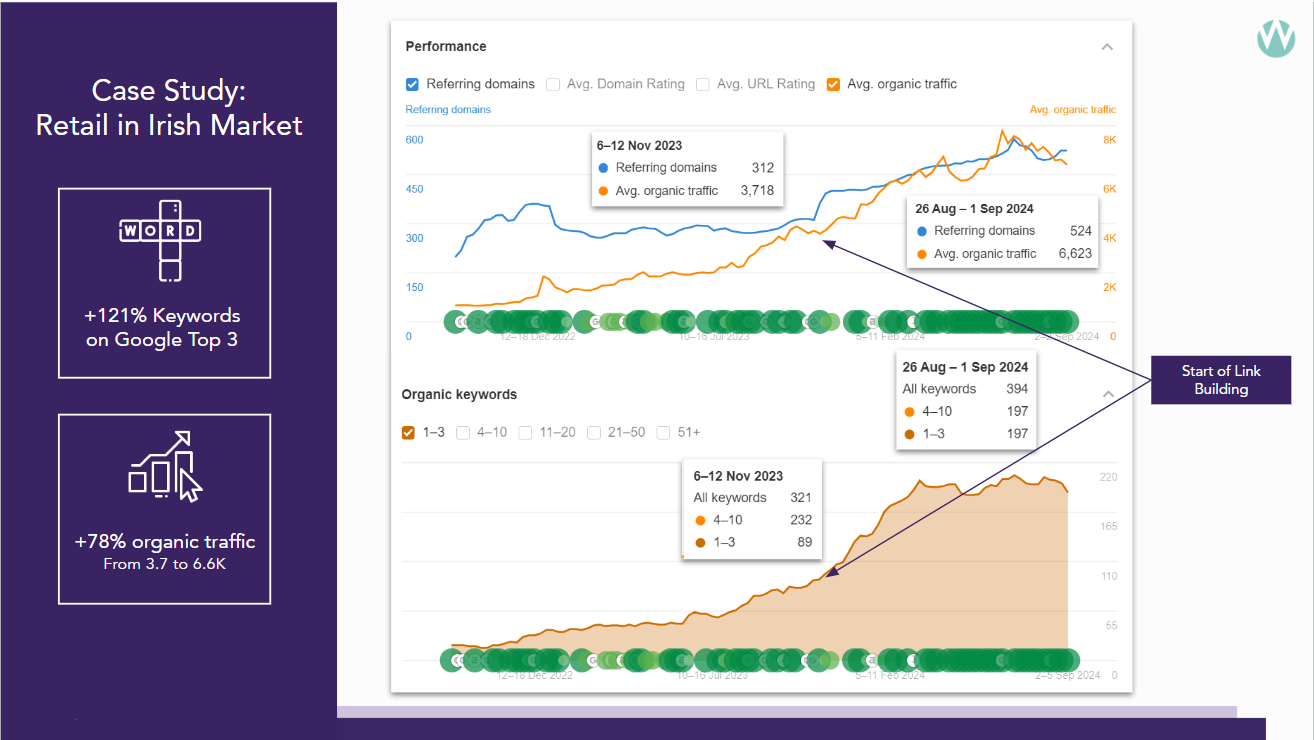
Example of How Link Building Successfully Increased Our Client's Google Ranking & Organic Traffic
How is link building different from digital PR?
Link building and digital PR might seem similar, but they have different goals and approaches.
Our link-building strategy is all about securing high-quality backlinks that boost your site's organic visibility and improve non-branded keyword rankings. We focus on obtaining DoFollow links (which pass SEO value by opposition to NoFollow) from relevant, authoritative sites, using keyword-rich anchor text to funnel SEO value to specific commercial pages. This approach is designed for sustained, long-term benefits, gradually enhancing your search engine rankings and increasing organic traffic over time.
On the other hand, digital PR aims to create immediate buzz and raise brand awareness. It often involves securing media coverage and mentions that might link to your homepage or use branded anchor text. While these links can enhance your brand's visibility, they don’t typically drive non-branded search traffic, which offers more opportunities for organic growth. Additionally, digital PR links might be NoFollow or diluted by multiple external links within a single article, which reduces their SEO value. Plus, digital PR is dependent on newsworthiness, making it less consistent year-round, whereas link building is an ongoing effort designed for steady, long-term SEO improvements.
How can we measure the success and impact of link-building?
Link building is like planting seeds. The ultimate goal is to grow a lush garden of organic traffic and revenue. But remember, these seeds don’t sprout into dollars overnight. The magic of link-building lies in boosting your site’s authority and rankings, which eventually leads to increased visibility and traffic.
So, how do we gauge success? Look for these signs:
- Expanded Organic Keyword Rankings: The more keywords you’re ranking for, the broader your reach.
- Improved Keyword Positions: Watch as your key pages climb higher in the search results.
- Enhanced Organic Impressions & Traffic: More eyeballs on your site, leading to more qualified visitors.
- Increase in Domain Rating: This shows that your site is building muscle in the SEO world.
These metrics are the green shoots that tell us our link-building efforts are paying off.
How long will it take to see traffic/revenue uplift to targeted pages?
Patience is key in the world of SEO. Think of link building like growing a tree - it takes time to see the fruits of your labor. We work with a diverse range of clients, each with unique goals and challenges, so timelines can vary. On average, though, you can anticipate noticeable improvements around the four-month mark.
Will we get penalised by Google if we build links?
The idea behind link building is pretty straightforward - websites vouching for each other. But as with any good thing, there’s always someone who tries to game the system. Enter black hat SEO and link farms - practices that Google doesn’t look kindly upon.
However, recent leaks from Google suggest that penalties for bad links aren’t as common as you might think. Instead of penalising your site, Google is more likely to ignore those low-quality links altogether. So, while they won’t hurt you, they won’t help you either. The key is to stick to best practices and follow Google’s recommendations to ensure your link-building efforts are above board and effective.
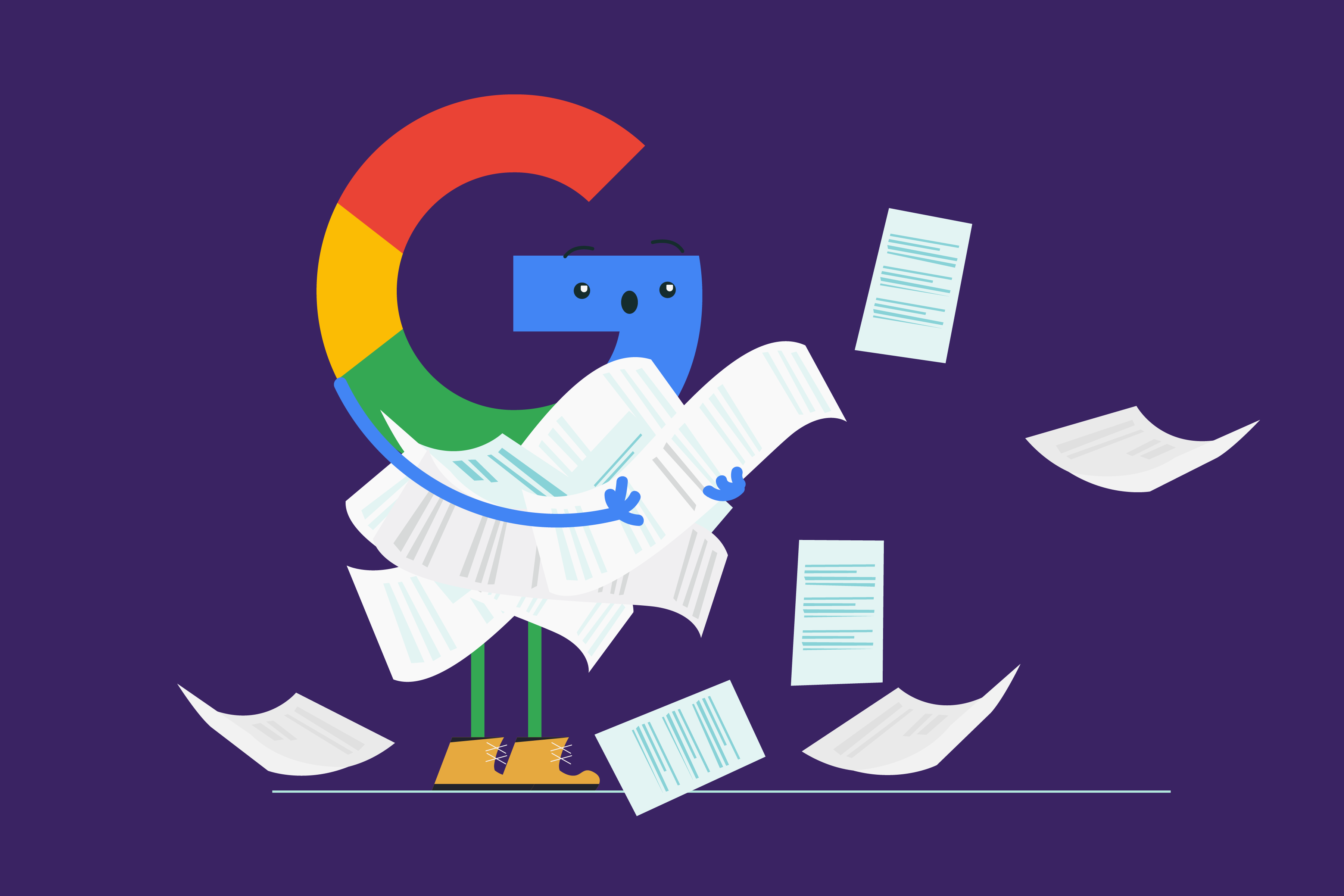
What’s the difference between articles for link building and creating content for our own website? (Guest Post vs. Content)
When you’re crafting content for your own website, think of it like curating a masterpiece in your art gallery. Every brushstroke—aka every keyword, internal link, and paragraph - matters. The goal is to wow your visitors, rank high on Google, and build your brand’s authority.
Guest posts, however, are more about getting your art displayed in other galleries. They help you gain exposure and authority by linking back to your site. Here, while the quality still counts, we’re less focused on deep keyword dives and more on ensuring the link fits naturally into the conversation. It’s about striking a balance between being helpful to the host site’s audience and subtly steering them back to you.
Will the guest post compete with our own article (similar topic)?
Not really. Think of it this way: the guest post is like a side dish, while your article is the main course. Even if the guest post touches on a similar topic, it doesn’t have the same SEO seasoning - no deep keyword research, no extensive coverage, and no fully optimised content. Plus, the site hosting the guest post likely doesn’t have the same built relevance on that specific topic.
In short, the guest post is there to complement, not compete. It’s all about building relevance and authority for your site without stepping on your toes.
Can we do link-building ourselves?
Absolutely! Link building is something you can tackle on your own, but it’s important to know that it can be a bit like planning a fishing trip. You need the right gear, plenty of patience, and access to the best spots. The process of reaching out to publishers, securing spots for your articles, and obtaining those high-quality backlinks takes time, effort, and a fair amount of persistence.
If this all sounds like a lot of time-consuming hard work, you might consider partnering with a best-in-class SEO agency. Agencies have established relationships, expertise, and the tools needed to navigate the link-building landscape more efficiently. By leveraging their experience, you can secure valuable links more quickly and effectively, allowing you to focus on other critical aspects of your SEO strategy.
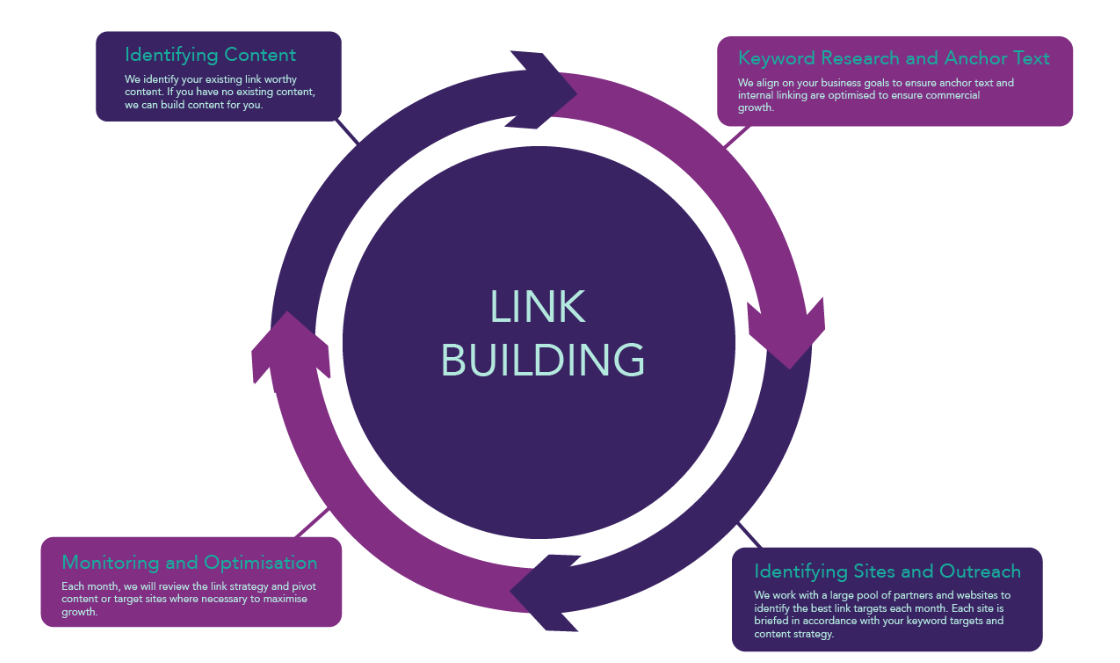
Example of How Wolfgang's Link Building Process Works
Can we build links if we don’t have any content?
You sure can! Link building isn’t just for blog posts. It’s like adding bricks to a building—every link adds strength to your site’s foundation, whether it’s pointing to a blog, a product page, or a service offering.
For eCommerce sites, building links to category or collection pages can help boost your rankings for high-volume, non-branded searches. For lead generation, linking to service pages can increase visibility and drive more inquiries. And because link equity trickles down through your site via internal links, the benefits of link building can spread, lifting your overall site authority and performance.
How do we evaluate if a link is valuable?
Not all links are created equally. A good link is like a golden ticket, boosting your site’s authority and helping you climb the search rankings. Here’s what makes a link truly valuable:
- Relevance: The linking site and article should have a relevant connection to your industry. A fashion blog linking to a cybersecurity brand? Not so much. Google will likely ignore this one, providing no value to your site.
- Traffic from Relevant Countries: Links from sites with relevant geographic traffic are more valuable for your site.
- Context and Anchor Text: The link should feel natural and be surrounded by related content. The anchor text (the clickable part of the link) should also be optimised for SEO.
- Freshness: According to Google’s recent leak, newer pages usually carry more weight than older ones.
- Domain Rating / Authority: The higher the linking site’s authority, the better for your SEO. However, Google has mentioned that links from topically relevant websites and traffic are more valuable than those with only high DR.
These criteria help us sift through the noise and zero in on the links that will truly make a difference for your site.
Do NoFollow links bring value to the site?
NoFollow links are like signs that say, “Proceed with caution.” They tell Google that the linking site doesn’t officially endorse your page, so these links don’t pass on the same SEO value as DoFollow links.
That said, NoFollow links aren’t entirely worthless. If people click on them and take action on your site, they can still bring indirect benefits. Google might notice that traffic and consider it a positive signal. So, while they’re not the most powerful tool in your SEO toolkit, they can still contribute to your site’s overall performance.
Can we use UTMs for link building?
UTMs are like the breadcrumbs you leave behind to track where your visitors come from. But here’s the catch: while handy for tracking, UTMs might not be the best friends of link value in the SEO world. Why? Because search engines could see those tracking parameters and think, "Hmm, maybe this link isn’t as natural as it looks." And if the UTM isn’t properly handled—like not being canonicalized or redirected if removed—you could lose that precious link equity.
Given these potential pitfalls, we’d advise against using UTMs in your link-building campaigns. Instead, keep it clean and track performance using 'Referral' within GA4. It’s a safer bet to ensure those links deliver the SEO juice you’re after.
Conclusion:
In a nutshell, link building is a game-changer for boosting your site’s visibility and search rankings. If you're curious about how it can truly transform your business, feel free to reach out to us.
We’ve got numerous case studies across various industries that showcase the real impact of a solid link-building strategy which we would be happy to share.




